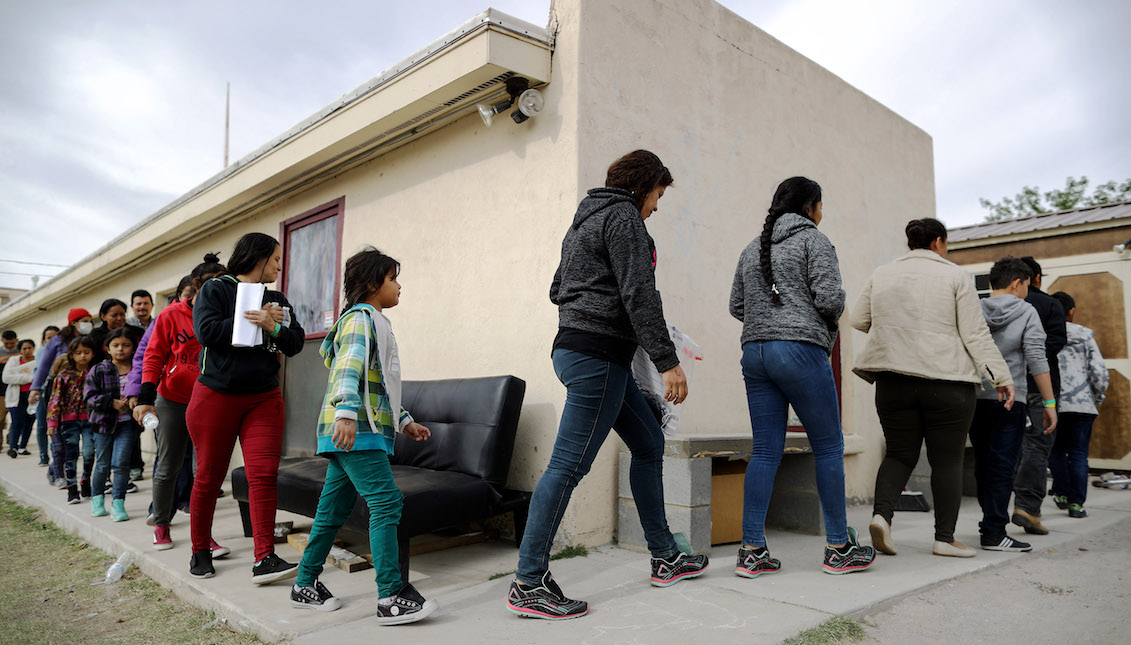
Asylum seekers’ live a hell at the hands of the U.S.
Overcrowding, mistreatment and the separation of families are just some of the hardships that thousands of immigrants requesting asylum at the United States…
If you ever questioned the hell that Central Americans live on a day-to-day basis back home, just take a look at what they decide to endure once they arrive in the United States, because returning home is a trip back to purgatory.
Besides the thousands of kilometers they must travel - like contraband, in makeshift transports or even on foot - migrants reduce their lives to a backpack and a fixed
goal: to survive.
But getting to the border, unlike what they may have dreamed of at some point, is hell in itself.
The administration of President Donald Trump has decided to make the asylum application procedure in the country a thousand times more complicated, refusing to receive more immigrants, whatever the cost.
"A hostile system", as Jenny Jarvie describes it in her article for Los Angeles Times, "forces them to languish in far-flung detention centers with no hope of parole, scant access to lawyers and ultimately little chance of winning their cases."
Hundreds of people remain stuck in makeshift camps or detention centers whose infrastructure has far exceeded its limits.
In early May, the Associated Press estimated around 13,000 immigrants waiting across the border to apply for asylum and who have built shelters on the geographic boundaries imposed by law.
The new administrative guidelines applied by the Trump government have forced Immigration and Customs to repeat the same phrase over and over: there is not enough space or personnel to process them all.
RELATED CONTENT
The few "lucky" who manage to pass the entry points and formally request the protection of the U.S. government, run the risk of ending up crowded together with hundreds more who take turns to stand on a toilet and breathe fresh air.
This was the picture described by the Inspector General of the Department of Homeland Security in a report on the conditions in the processing centers in the El Paso area, which highlighted the "dangerous overcrowding" and "unhealthy conditions" to which immigrants are subjected.
In centers with a maximum capacity for 125 immigrants, the Department's report counted between 750 and 900 detainees, who "were standing in the toilets of the cells to make room and breathe."
This scenario is repeated in several of the detention centers, especially after ICE decided to relocate immigrants in prisons with private contracts in regions such as Louisiana, Alabama, Arkansas, and Tennessee, where several asylum seekers are stuck with no option to conditional release.
According to Laura Rivera, a lawyer with the Southern Poverty Law Center who spearheaded a class action lawsuit against the government, Immigration and Customs Enforcement officials carry out "false parole reviews" even though the migrants have demonstrated a credible fear of persecution, thus violating federal law and their human rights.
These hundreds of immigrants were not detained committing crimes. These immigrants have not broken the law; in fact, they have presented themselves voluntarily and according to Homeland Security requirements at the ports of entry of the country, and they don’t have a record that could force the United States to treat them as if they were criminals until proven otherwise.
This includes unaccompanied children, who as of the 30th of this month will not have the right to present their cases before the Citizenship and Immigration Services.
In the end, the government prefers abuse as a deterrent and the incoherent economic blows against the countries of the region, as long as they don’t have to put themselves in the shoes of the other.











LEAVE A COMMENT:
Join the discussion! Leave a comment.